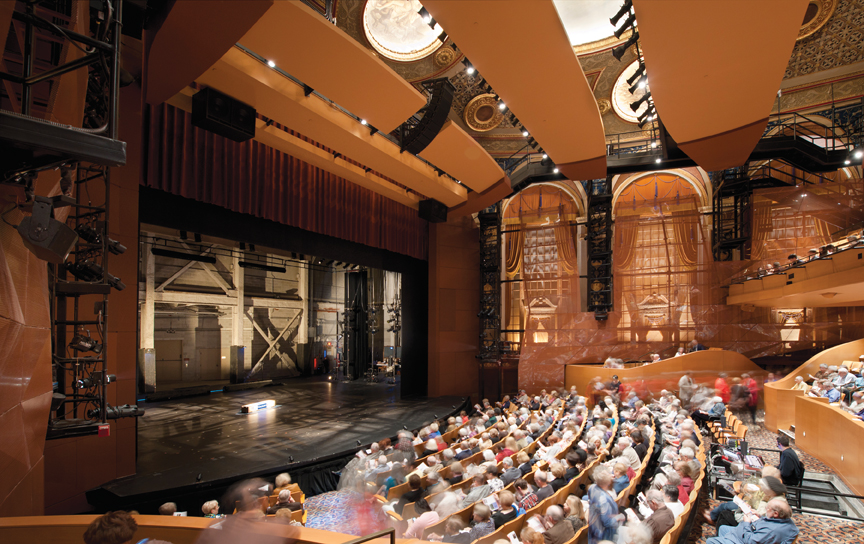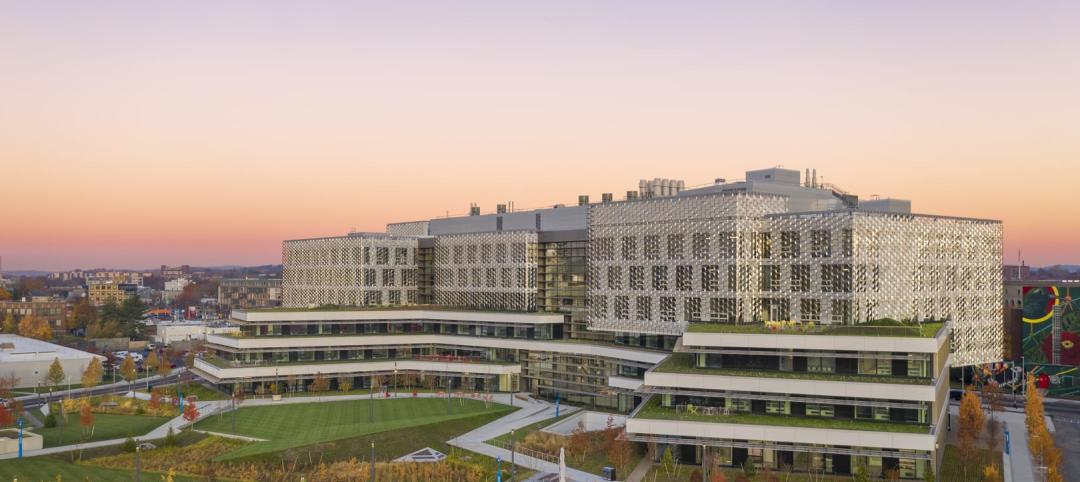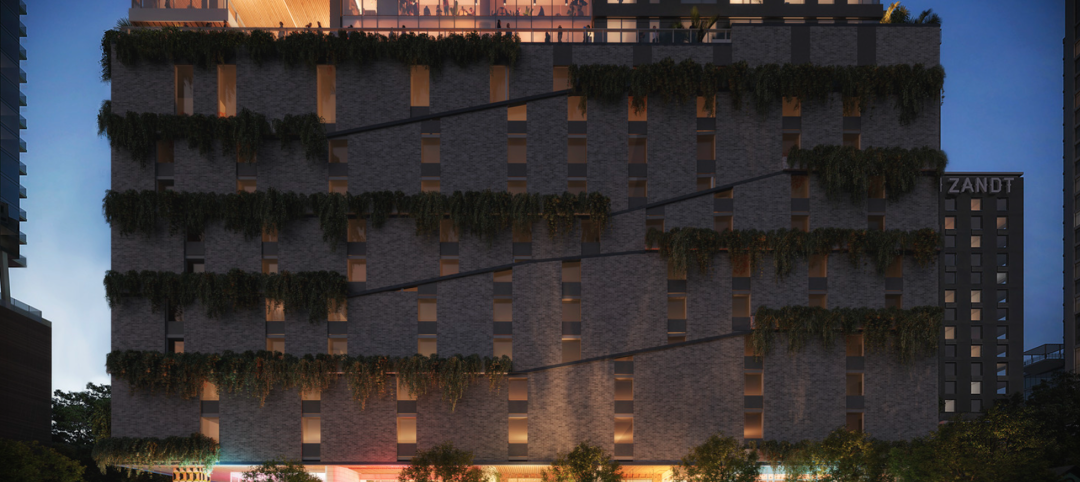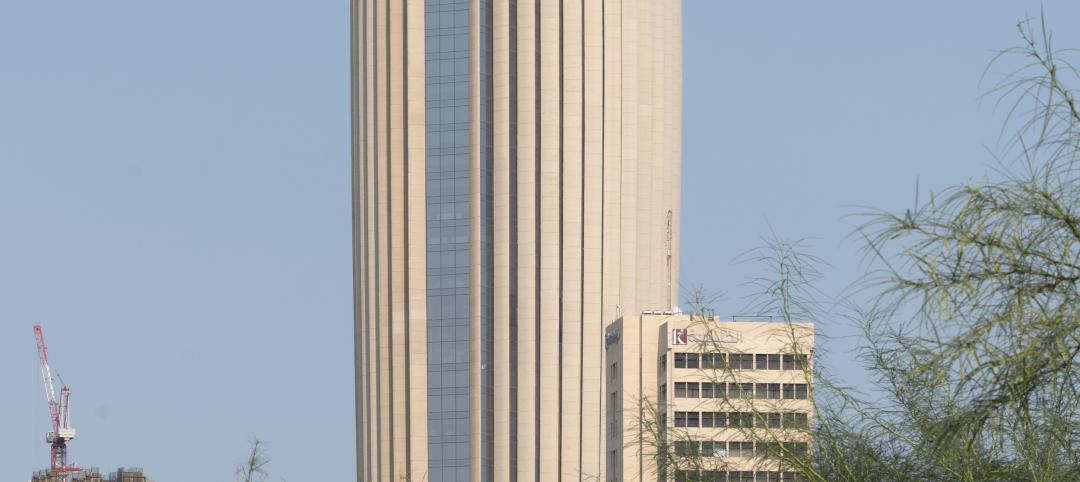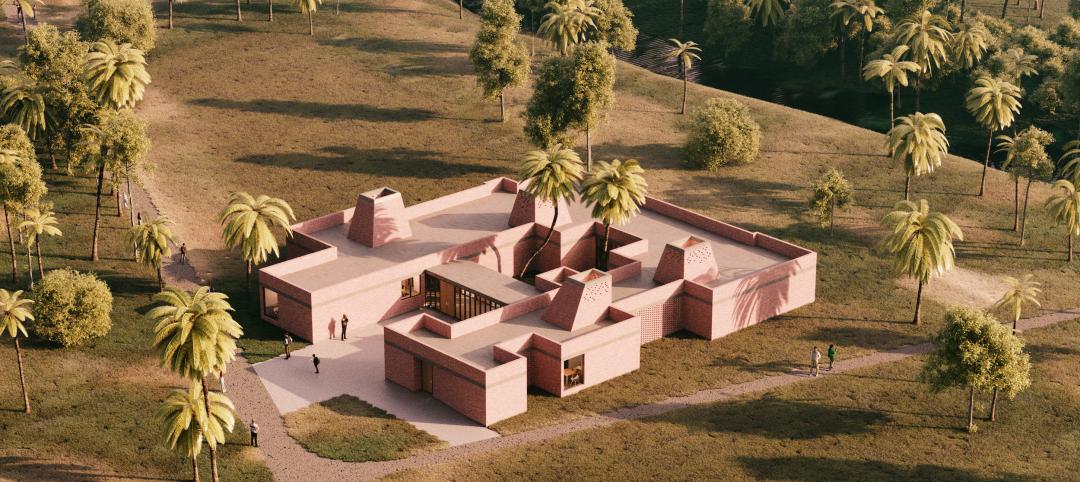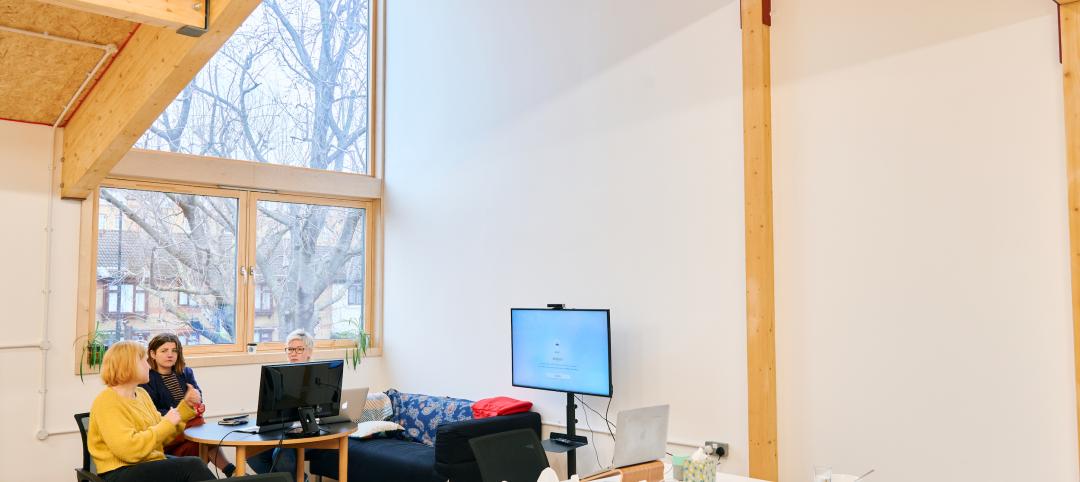Cleveland’s Allen Theatre opened in 1921 as a 3,080-seat movie house. It was spared from the wrecking ball in the 1970s. In the late 1990s it underwent a renovation that reduced the number of seats to 2,500, and it reopened in 1998 as a venue for live theatre. By 2010, it was marginally utilized, a victim of changes in the entertainment industry and the national economic downturn.
The reconstruction of the Allen Theatre was made possible by a unique collaboration among three organizations: the Cleveland Play House and Cleveland State University, each of which needed to build new performance facilities; and Cleveland’s PlayhouseSquare, the second-largest theatre district in the country (after New York’s Lincoln Center) and the largest total historic theatre district in history, with 10 renovated, reconstructed, and new insertion venues.
PROJECT SUMMARY
ALLEN THEATRE AT PLAYHOUSESQUARE
Cleveland, OhioBuilding Team
Submitting Firm: Westlake Reed Leskosky (architect, engineer)
Acoustician: Talaske and Associates
Construction manager: Turner Construction Co.General Information
Size: 81,500 sf (renovation), 44,000 sf (addition)
Construction cost: $30 million
Construction time: August 2010 to December 2011(Phase I) and January 2012 (Phase II)
Delivery method: CM with GMP
All three entities were clients of local architecture firm Westlake Reed Leskosky, which brought them together to fulfill their professional and educational agendas. WRL provided all architectural and engineering services, with Talaske and Associates as acoustician and Turner Construction Company as construction manager.
The $30 million project resulted in three new theatres in the existing 81,500-sf space and a 44,000-sf contiguous addition: the Allen Theatre, the Second Stage, and the Helen Rosenfeld Lewis Bialosky Lab Theatre.
The Allen Theatre was transformed into a 512-seat proscenium stage theatre. The space was downsized to improve acoustics and allow for vocal clarity without the need for amplification. New sidewalls featuring scrims of perforated metal were constructed, designed to reflect sound to patrons in and under the balcony. The area under the balcony was redeveloped into a lounge and pre-show events space.
The Second Stage is a transitional space that flexibly seats up to 348 and is equipped with seating wagons that can transform the stage area into multiple configurations. The Helen is a 150-seat black-box theatre for smaller performances and educational programs.
All three theatres were up and running by this past January. With the addition of these new venues, PlayhouseSquare expects at least 150,000 additional guests to patronize the renovated theatre district each year. +
Related Stories
AEC Tech Innovation | Apr 27, 2023
Does your firm use ChatGPT?
Is your firm having success utilizing ChatGPT (or other AI chat tools) on your building projects or as part of your business operations? If so, we want to hear from you.
Concrete Technology | Apr 24, 2023
A housing complex outside Paris is touted as the world’s first fully recycled concrete building
Outside Paris, Holcim, a Swiss-based provider of innovative and sustainable building solutions, and Seqens, a social housing provider in France, are partnering to build Recygénie—a 220-unit housing complex, including 70 social housing units. Holcim is calling the project the world’s first fully recycled concrete building.
Multifamily Housing | Apr 21, 2023
Arlington County, Va., eliminates single-family-only zoning
Arlington County, a Washington, D.C., community that took shape in the 1950s, when single-family homes were the rule in suburbia, recently became one of the first locations on the East Coast to eliminate single-family-only zoning.
Architects | Apr 21, 2023
Architecture billings improve slightly in March
Architecture firms reported a modest increase in March billings. This positive news was tempered by a slight decrease in new design contracts according to a new report released today from The American Institute of Architects (AIA). March was the first time since last September in which billings improved.
Green | Apr 21, 2023
Top 10 green building projects for 2023
The Harvard University Science and Engineering Complex in Boston and the Westwood Hills Nature Center in St. Louis are among the AIA COTE Top Ten Awards honorees for 2023.
Multifamily Housing | Apr 19, 2023
Austin’s historic Rainey Street welcomes a new neighbor: a 48-story mixed-used residential tower
Austin’s historic Rainey Street is welcoming a new neighbor. The Paseo, a 48-story mixed-used residential tower, will bring 557 apartments and two levels of retail to the popular Austin entertainment district, known for houses that have been converted into bungalow bars and restaurants.
Design Innovation Report | Apr 19, 2023
Reinforced concrete walls and fins stiffen and shade the National Bank of Kuwait skyscraper
When the National Bank of Kuwait first conceived its new headquarters more than a decade ago, it wanted to make a statement about passive design with a soaring tower that could withstand the extreme heat of Kuwait City, the country’s desert capital.
Design Innovation Report | Apr 19, 2023
HDR uses artificial intelligence tools to help design a vital health clinic in India
Architects from HDR worked pro bono with iKure, a technology-centric healthcare provider, to build a healthcare clinic in rural India.
Design Innovation Report | Apr 19, 2023
Meet The Hithe: A demountable building for transient startups
The Hithe, near London, is designed to be demountable and reusable. The 2,153-sf building provides 12 units of business incubator workspace for startups.
Metals | Apr 19, 2023
Sherwin-Williams Coil Coatings releases new color forecast for architectural metal coatings
The Coil Coatings division of Sherwin-Williams has released its latest color forecast, FUSE, for architectural metal coatings. The report aims to inspire architects, product manufacturers and original equipment manufacturers (OEMs) in the coil and extrusion market over the next 3-5 years and beyond.


